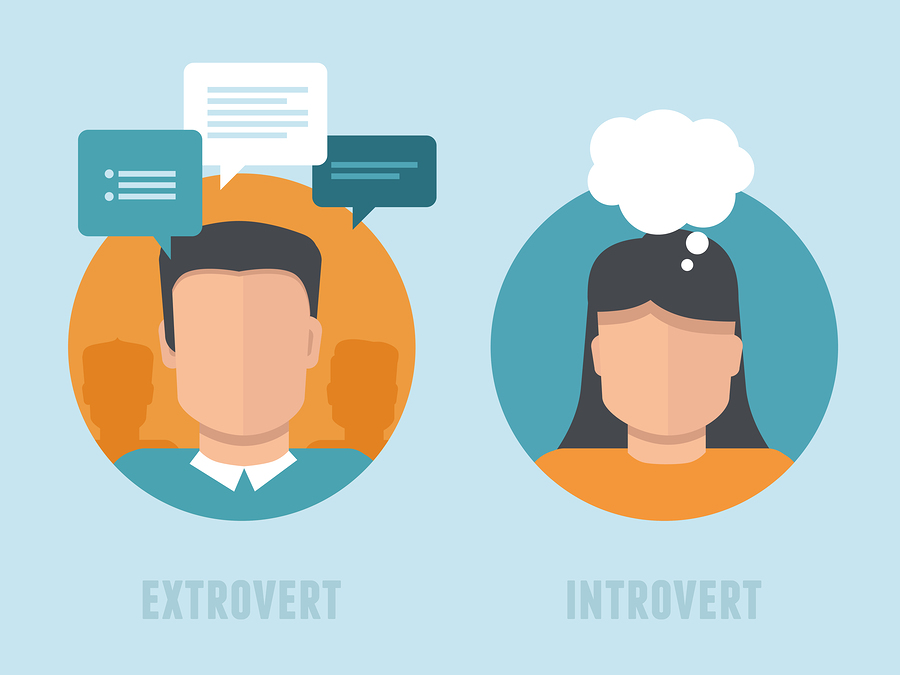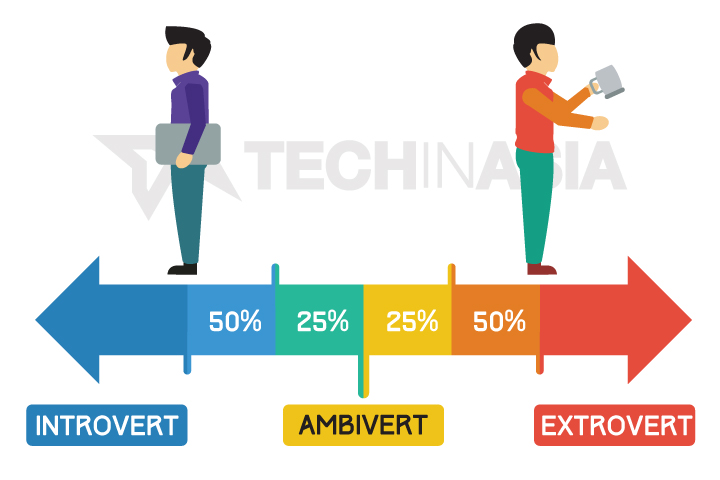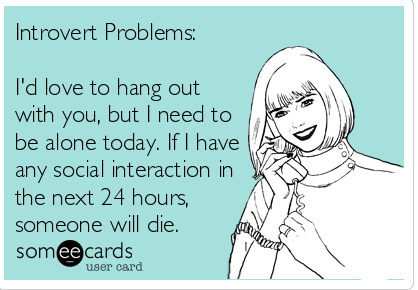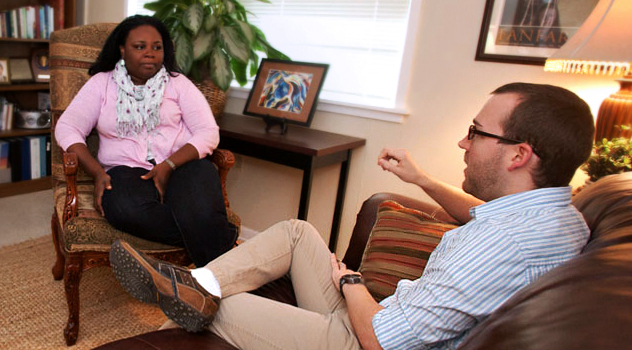Let’s assume you’re an introvert or you know someone who is, thus you’re reading this intriguingly titled article. If you’re not an introvert, please stay. It will help you understand the quieter half of humanity. Perhaps you’re not sure where you fit in. Relax. We’re here to help.

(Source: skipprichard.com)
In general, introverts tend to prefer independent time to their extroverted counterparts. They tend not to be as outgoing, sometimes even withdrawn.
Whereas extroverts, tend to draw energy from engaging other people, introverts may feel drained from such situations.
Don’t confuse this with shyness. There are plenty of introverts you would never call shy, that still struggle with endless socialization.
There are plenty of extroverts who are not boisterous either. Add to that, some learn how to control their tendencies, even conceal them, maybe for the purposes of getting ahead.
The question for the introvert is, how do I not slowly turn into a troglodyte? Introverts not only want to find where they fit in socially but where they fit in professionally. In many ways, these are parts of the same whole.
The key is understanding the nature of introversion, how it manifests in your life, then using that information to find your best plan for branching out, for not getting overwhelmed.
Intro to Introversion

(Source: rantswithintheundeadgod.blogspot.com)
At some point, you may have taken the Myers-Briggs test. It’s tool of psychology to determine character traits.
The test plots your character in four areas, dropping your personality into one side of the spectrum for eight different traits. Your test results are some combination of four letters, which you can use to gain insight into your personality.
The test identifies where you land in on the spectrum for several polarizing traits, sensing versus intuition, thinking versus feeling and judging versus perceiving. It’s the introvert versus extrovert portion that receives the most notoriety.
In traditional hiring practices, extroverts were considered more desirable. In more recent history, this trend has shifted. Due to more current research we’ve found that introverts add considerable value to organizations. According to some, they may even make better leaders than their outgoing counterparts.
After taking the test you may determine that you do not fall far enough on the introversion side to worry about it one way or the other. Plenty of people can live in both worlds in some fashion or another.
That said, if you test as a clear introvert, you may wish to know that so you can plan.
Type of Introvert

(Source: crew.co)
Try to keep this simple. Books exist breaking this trait down beyond the ridiculous. Are you a strong introvert or are you only somewhat introverted? Maybe you’re an ambivert?
The plan will be the same, but for those who are more introverted, they need to respect their brain’s need for peace.
Ignoring the innate desire to withdraw could cause that person to suffer withdrawal or depression. There has to be an amicable balance.
At the end of the day, whatever any tool says about what kind of introvert you may be, what matters more is how your body responds. The most important skill you develop, in this regard, is the ability to recognize how your body reacts to stimulation.
Perhaps you get tired or your mind starts to buzz. What’s more, if you can stay ahead of these signs, then you will be happier in the long run.
Recommended: A professional counselor can be invaluable exploring this.
Breaking the Seal

(Source: pinterest.com)
Introverts tend to do okay in small groups or individual interactions, but that doesn’t mean they can’t function in groups. What helps is to gather some understandings of how socialization works. It also helps to accept that there will be some fear.
The hardest part is finding a group at work with whom you can hang out. Unless you happen to work with many introverts, you’ll get stuck with the extrovert crowd. That’s okay.
Asking questions at work like, “Is there anything fun going on this weekend?” can be a great lead into an invite. It may be too-much-too-soon for some.
If you can start by befriending one person, that may get you in the door of a few social events.
In the worst case scenario, you may need to be the one get the ball rolling. Invite one or more people to meet you out for coffee or dinner or brunch. Food is a great excuse to get together.
If your home is set up for it, you may choose to host a little get-together. Once you make these plans, you’ve broken the seal.
Leverage Your Talents

(Source: redcaperevolution.com)
As an introvert, you think socializing means talking. That problematic, because you tend to stay quiet most of the time.
You’ll be fine. You don’t have to spin yarn to socialize. In fact, the less you talk, the better. Being a good listener, one of your talents is more than twice as valuable as talking about getting people to like you.
In fact, if you study the behaviors of the best salespeople, they are good at getting other people to talk. People love to talk about themselves, especially those extroverts.
You start the ball rolling by asking open-ended questions. Then, when they finish, you just ask another open-ended question. Here’s a good one: what do you mean?
Just, be careful. You don’t want people to think you’re interrogating them. This will happen if you ask closed questions, the kind one can answer with yes or no.
It sounds silly, but practice asking questions that start with what, how, when or tell me about a time when, works. Avoid questions that start with words like do, will, and can.
It’s also a good rule of thumb to relate to the things people say, like “Oh I know how that feels,” or “I hear ya,” between their yammering.
Manage Your Outings

(Source: yesiknowimquiet.com)
This is key. Burnout can crush you. You may find that you’re pretty good at getting people to talk. Some introverts get so good at this, they seem like extroverts.
Your new friends may not know much about you because they were talking the whole time, they still feel like they know you so well. They know one thing, they like you. They may even tell you so much.
Because validation and love feel good, you may find it tempting to overwork your new skill. Temper your socialization to maintain your wellbeing. Too much socialization may wear you down.
You may start to resent the time you’ve spent. You may even resent your new friends. It’s not their fault if you overextend yourself.
Instead, pay attention to those signs we talked about. Temper your interaction with breaks.
You can start with one social event every two weeks or every weekend until you know how much you can take. Listen to your body afterward, then ramp it up if you feel you can take it.

(Source: cephalicvein.com)
You’re not overreacting to seek counsel from a professional. Counselors can prove invaluable when sorting through personality traits, especially those that may isolate you.
What counselors offer is their scope of education and experience. What we offer is free advice, but it should never substitute the advice of someone licensed to advise you.
Whatever you decide, know that you can do this if you want it. Also, know that you don’t have to if you don’t. As long as you are content on your road, then keep walking.
Want to read a good book on being an introvert? Check out Quiet: The Power of Introverts in a World That Can’t Stop Talking, by Susan Cain.



